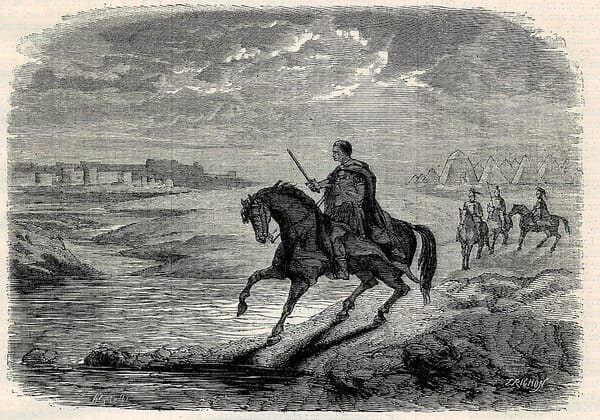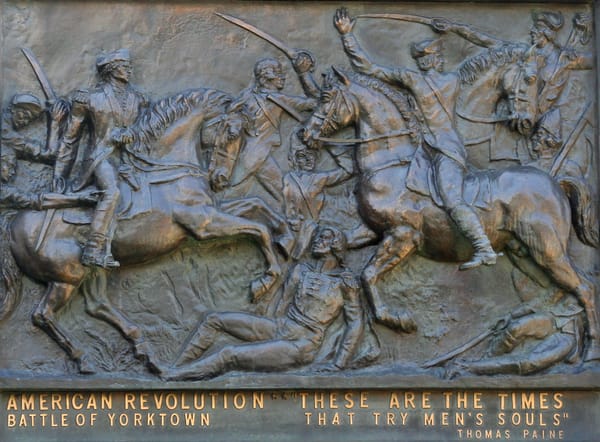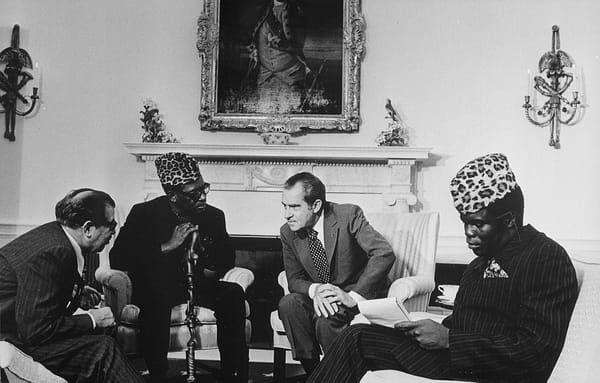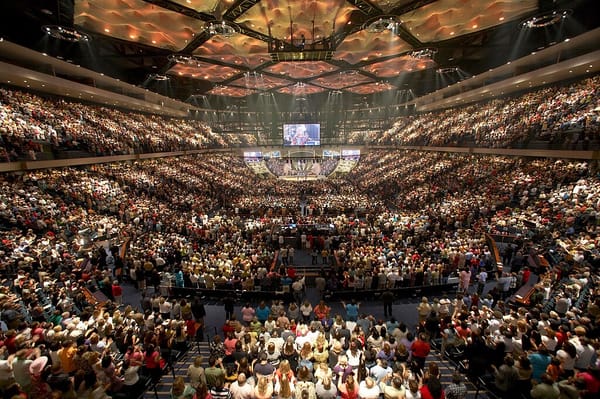Jacob Levy's Liberalism of Tragedy

Against a liberalism of pre-political foundations and historical destiny, Jacob Levy has been working hard to recover a vision of liberalism that appreciates the complex patchwork of social life, is historically contingent, and accepts the existence of irresolvable tensions. Though he has been influenced by Judith Shklar’s “Liberalism of Fear,” the character of his work could better be described as a Liberalism of Tragedy. Levy’s work provides the perfect antidote for the bloodless caricatures of liberalism paraded out by its critics today, and throughout its history.
Political and social space is made up, in Levy’s framework, of a pluralistic patchwork of what he calls “intermediate associations” (after the corps intermédiaires of Montesquieu, the progenitor of Levy’s strain of liberalism). “Intermediate” implies occupying a space between the individual and the central state, which is a decent first approximation but ultimately deceptive, because they are often multi-national and may even have pre-dated the state they are in, or the nation-state itself, as in the case of the Catholic Church.
These include ethnic, cultural, religious, and identity groups, as well as associations of any kind (industrial, neighborhood, hobby). For Montesquieu the main intermediate bodies were the nobles and other regional powers who could hold the power of the king in check. The form of liberalism which defends the rights of these intermediate bodies, either as an intrinsic feature of our freedom of association, or as a bulwark against central power, Levy calls pluralism. The view that these associations are allowed to exist only so long as they do not promote illiberal tendencies – a rule to be enforced by the central power – he calls rationalism (after the rationalizing bureaucracy of Max Weber’s modern state).
Levy is neither effusive in his praise nor overly critical of these associations. In The Multiculturalism of Fear he puts it this way:
This book does not celebrate ethnic and cultural identities, the beauty or diversity they add to the world, or the meaning they add to the lives of many. One recurrent theme is that the preservation or perpetuation of any one cultural identity or community is not, by itself, a political goal of high moral importance. But neither does this book advocate or even look toward the transcendence of ethnic or cultural identities in favor of a cosmopolitan ethic. Encouraging the abandonment of particular cultural identities is also not a political goal of high moral importance. We should recognize the meaning and order that cultural and linguistic communities give to persons’ lives; we should also recognize the countless evils that have been committed in the name of ethnicity and nationality. In this book, therefore, attachment to one’s own ways and one’s own kind (in all the various and contradictory ways in which those are defined or constructed) is treated neither as a virtue to be praised nor as a vice to be condemned but as a fact of the world. The communitarian celebration of cultural communities as such slips too quickly from is to ought, while the position that no accommodation can be made to ethnicity because it ought to be left behind has forgotten that ought requires can.
He puts no moral priority on either the preservation or the abandonment of particularistic group affiliations, and cautions the rationalists who think that the latter goal is feasible:
Both the durability and the fluidity of ethnic identity are sometimes forgotten, and sometimes moved into the category of meliorable conditions. Too much emphasis on the constructedness of identity and cultures perhaps leads some postmodernists to forget how real they can feel and how much they matter in the decisions people make, the actions they take. I think Eric Hobsbawm—not a postmodernist but a Marxist—has been misled in this way in his important work on nationalism. Hobsbawm has pointed to the invention of national traditions, the fact that putatively ancient beliefs were deliberately fostered at a moment in the not-too-distant past, and supposed that someday soon people will reject nationalist fictions in favor of the reality of class interests. But—to take a simple example—when a contemporary speaker of French realizes that it is not in fact the language of his ancestors, that a handful of generations ago they were Alsatian or Provençal-speaking peasants and not ‘Frenchmen,’ that their languages were deliberately discouraged in a coercive assimilationist French nationalist project, he remains a speaker of French. He typically remains more comfortable in a Francophone milieu, and is perhaps unwilling to see that milieu undermined by the encroachments of English, eager for political action to bolster the position of his own language. Learning that the francophone national state was an invention, an imagined and created community, does not make him any more willing to see it uninvented or replaced by another imagined community. Similarly, the fact that the Hutu and Tutsi identities as they exist now—biological, racialized, and fixed—were more or less creations of the Dutch colonial government does nothing to diminish their terrible power in the Great Lakes region of contemporary Africa. In short—and I think this is true throughout the social sciences, not only in the study of nationalism—we must remember that simply because something is an invention or a construction does not mean it can be remade or unmade at will.
For Levy, neither a nationalist solidarity nor a cosmopolitan ethos (much less an original contract) stand any chance of becoming the organizing principle for politics in a large state. While there may exist a sense of being a Frenchman, or a member of an American democratic religion, Levy argues that in practice there is too wide a variety in what people believe it means to be French or American.
In his contribution to a recent volume on solidarity, Levy suggests that liberals ought to find inspiration from Augustine’s City of God. For Augustine, true justice was not available in the City of Man, which was divided between the saved and the damned. However, it is the duty of the saved to seek the peace of Babylon while they are in this world.
While the inhabitants of the City of God and those of the City of Man cannot combine into any truly morally unified whole in a political city, they are nonetheless bound together by circumstance, and that circumstance calls forth obligations. They benefit from “the temporal peace which is for the time being shared by the good and the wicked alike.” He calls this “the peace of Babylon,” because it is of this world, where the saved live in captivity for a time. This differs from the ultimate peace available to the saved in Heaven, but is a genuine temporal good nonetheless.
(…)Augustine holds that what the a human polity offers is sufficiently valuable that Christians are called to civic participation and service, even as soldiers or judges who risk spilling innocent blood.
So what should liberals—the saved in this scenario (though I think Levy would be uncomfortable putting it quite like that)—be working towards? What is our peace of Babylon?
In The Multiculturalism of Fear, he encourages liberals to focus on “the dangers of violence, cruelty, and political humiliation which so often accompany ethnic pluralism and ethnic politics.”
In Rationalism, Pluralism, and Freedom, Levy’s true masterpiece, he argues that:
The core of liberal ideas includes religious toleration and freedom, in a sense that only took shape after the end of the wars of religion in Europe; the rule of law, and especially the control by law of the executive’s security apparatus through habeas corpus, procedural rights, and prohibitions on torture and extrajudicial executions, imprisonment, or dispossession, all of which make sense only in a world of strong executive and security capacity as well as strong legislative and judicial capacity; and the desirability of commerce and international trade, in a way that was intellectually rare before the eighteenth century, and hard to conceptualize before the idea of a political-economic policy took shape in the seventeenth.
Toleration, freedom, commerce, and rule of law, as well as the prevention of violence, cruelty and political humiliation. But these are not abstract first principles; they make sense only in the context of the strong, Weberian central states, and amid the complex, overlapping patchwork of ethnic and cultural pluralism.
Levy is extremely careful to anchor any theoretical consideration in concrete empirical phenomena. In The Multiculturalism of Fear he focuses especially on the case of indigenous law in North America. In recent essays, he has also written on the the cruelty and lawlessness of current border enforcement, and the complex and troubling history of the rhetoric of liberty’s interplay with the reality of the African American experience.
In both of his books, Levy provides laundry lists of the general ways that the core goals of liberalism get subverted. In The Multiculturalism of Fear, he identifies “Forced incorporation, forced exclusion, internal cruelty, and the lack of a framework for interaction” as persistent dangers in ethnic politics. The first two occur because states seek to create uniformity for rationalist reasons – that is, to impose the morally best framework on all its citizens – but also because it makes citizens inherently more governable. There are many good reasons for this, but:
[S]tates have to seek such uniformity precisely because it is not already present. For countless reasons—migration, conquest, the constant willingness of some people to alter their cultures and identities over time, and more—units of territory are culturally heterogeneous over most of the world, no matter how borders are drawn. Nationalizing states often respond either by trying to forcibly include minority groups whose identity is not that of the majority culture—to assimilate them—or by forcibly excluding them, by denial of citizenship, expulsion, or extermination. The same state may alternate between one strategy and the other in its treatment of a given minority; this has certainly been true of the United States’ treatment of American Indians and Australia’s treatment of Aborigines. At the extreme, this alternation may begin to seem like a single policy, with the directive ‘Assimilate or be killed.’ We have no right to be surprised if the offer of inclusion does not seem benign to a group that has, in living memory, been forcibly excluded.
However, avoiding these by simply respecting diversity ignores the internal cruelty that occurs within groups. And “state attempts to eliminate cruel practices within a minority group often raise difficulties in arranging the framework of interaction between state law and minority customary law.” Without a framework, states are likely to default to forced inclusion in some form. But frameworks are not neutral either – they are likely to make interference systematic and therefore more common, with all the attendant dangers.
In Rationalism, Pluralism, and Freedom, he identifies a number of causes for both state and intermediate group excesses. Just as states tend to push towards uniformity, they also rely heavily on information gathering in order to extract resources and to administer their institutions.
The dynamics of information-gathering are fundamental to the kind of social organization that a modern state is. Likewise, the tendency to conceal information is a basic feature of group life, at a bare minimum because what goes on inside a group is likely to be harder for state agents to see or understand. And this predictably engenders suspicion of the group on the part of the state, regardless of whether the group is in fact concealing resources or violations of the law. The mere fact that it could be tends to elicit stronger suspicions and greater interventions; the ability of groups to conceal is met with attempts by states to know.
Similarly, the structure of intermediate group life creates in-group elites who have authority over group members, and therefore power.
Authority relationships, Joseph Raz has taught us, are characterized by one person’s having reason to defer to the judgments of another—a person’s doing better, according to his or her own reasons, by allowing those judgments to replace their own (or at least some of their own). In these cases, even though the person submitting to authority has valid reasons to do so, some other person or group of persons is vested with the discretion to make decisions. This relation in aggregate serves the interests of those subject to it, but that does not mean that each of the decisions reached will do so. This creates the space for the authority-holders to reach (at least some) decisions for their own reasons, in their own interests.
Moreover, the presence of other groups and the state can, in the first act, exacerbate this:
Even more directly arising from the external environment is the power elites can gain over members by acting as intermediaries, or as representatives of the group to outsiders. In a world of two monolingual communities and one bilingual go-between, the translator has tremendous power, including the ability to capture a huge proportion of the gains from trade between the two groups. If one of the communities is socially and politically subordinate to another, the effect is even more dramatic. The intermediary is the only one who can intercede with the outsiders on behalf of the group members; he can in principle extract from group members anything shy of what they fear the outsiders will extract without his intercession. That power is not even rooted in the group members’ own desire for authority; it is not an extension of some internal good reason for hierarchy. It represents a kind of borrowing of the outside world’s real or imagined power.
Those members of our group who can serve as intermediaries between us and the outside world thereby gain power over us.
Levy painstakingly sketches out the centuries-long debate between pluralists who argued that the risks of group life were necessary to offset the excesses of the state, and rationalists who saw local power as the primary form of tyranny, to be corrected by a strong central state.
And in the end, he comes to a conclusion so characteristic of his liberalism of tragedy:
There is a genuine tension between the institutional realization of freedom to associate and of freedom within (or from) group life. Our consensual ways of joining together and pursuing our projects set and strengthen norms for those around us. They generate local surpluses of hierarchy and power that cannot be wholly tamed without harm to our cultural, religious, and associational freedom. The texture of social power is lumpy and irregular, and cannot be fine-tuned as the synthesizing theories demand. Liberty generates pluralism, which generates norms, norm enforcement, and local power, which limit freedom. Social groups provide organizational and political resources by which persons protect their freedom against the state; and those who hold in-group authority may then use those resources to their own power, directly or through interaction with the state. And the ability to see freedom in our associational lives and power in the state all too often limits the ability to see power in associations and the possibility of freedom being enhanced by outside intervention—and vice versa. If we are concerned with liberal freedom, we are, I think, left with no choice but to reject synthesis—whether of intermediate groups’ ethos with the state, or of rationalism and pluralism. This means living with a degree of disharmony in our social lives, our moral psychologies, and our political theory.
Against an era tilted towards the rejection of everything at the first sight of ugliness in anything, Levy’s liberalism is truly a philosophy of accepting responsibility for an imperfect world.
Republished, with slight modifications, from Sweet Talk
Featured image is The Storming of the Bastille, by Jean-Pierre Houël




